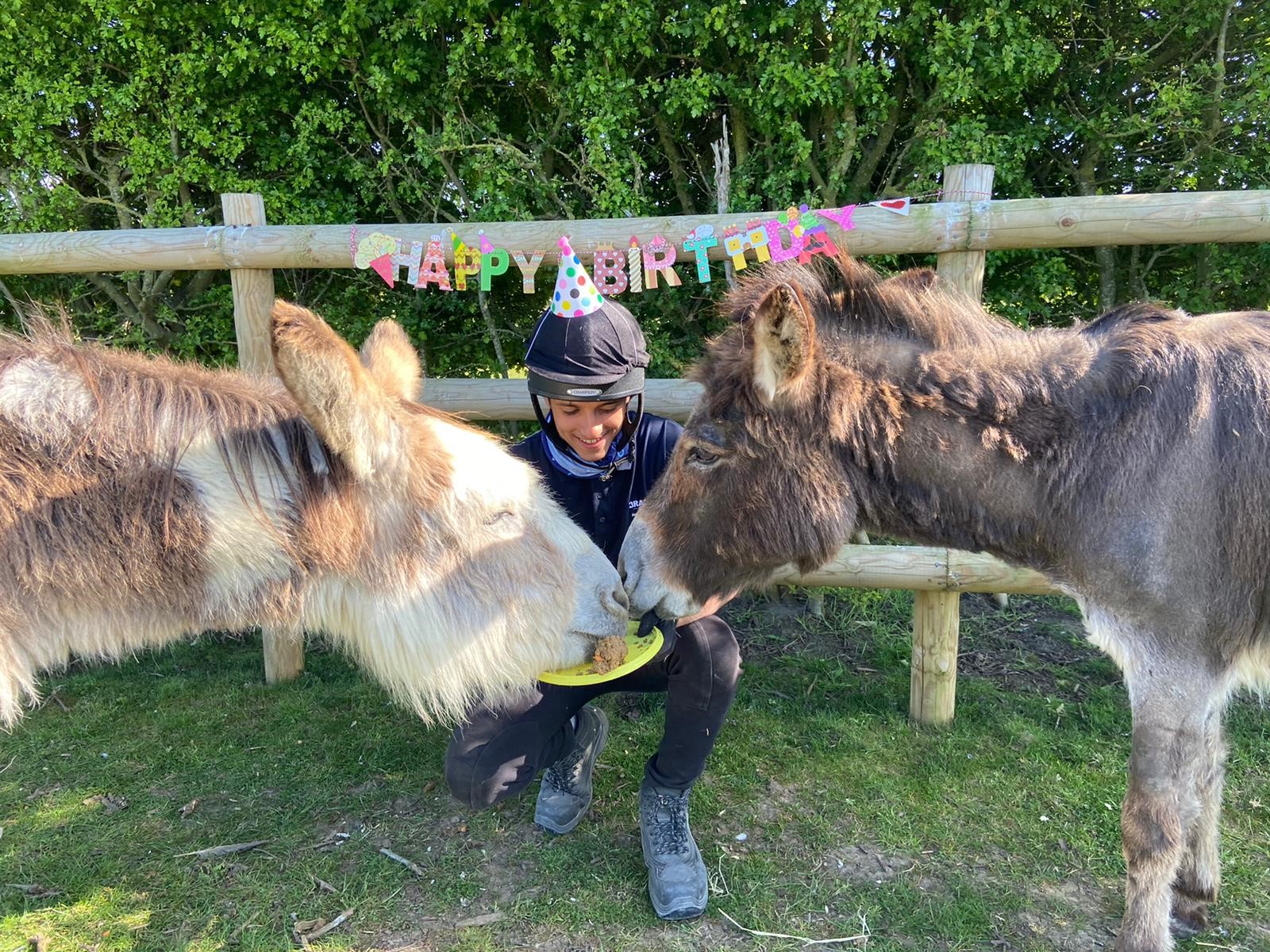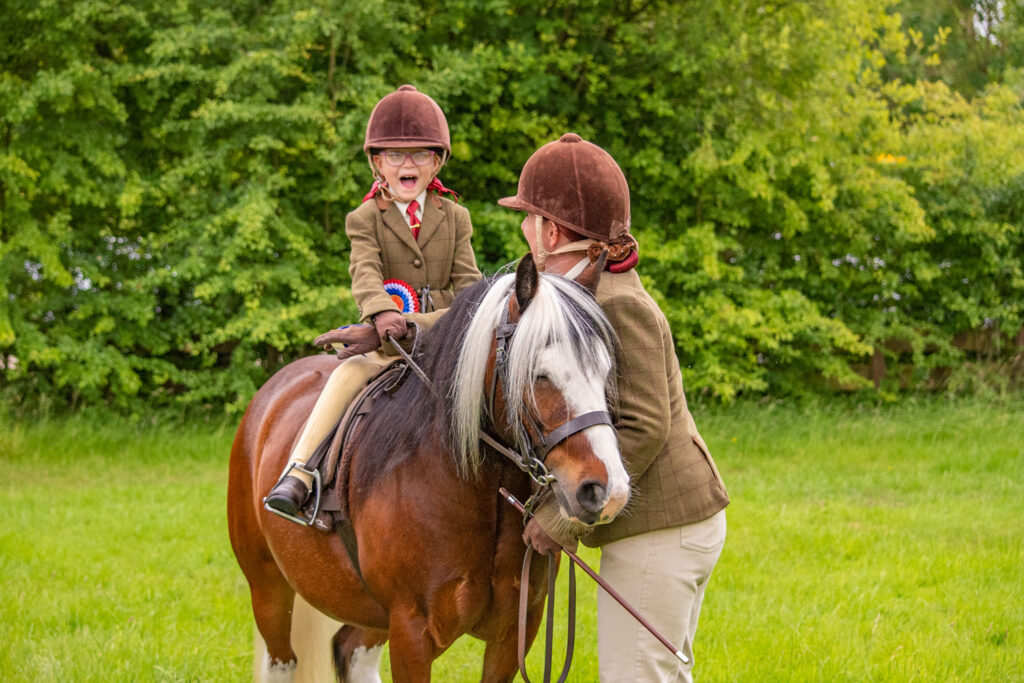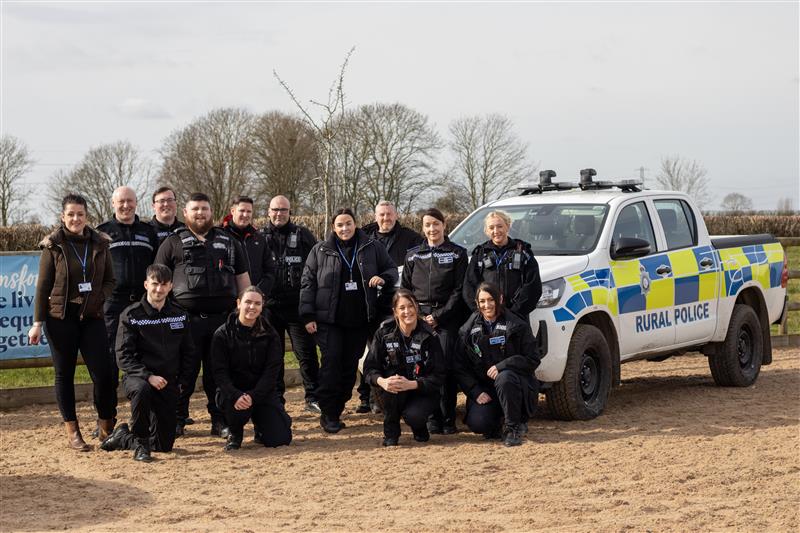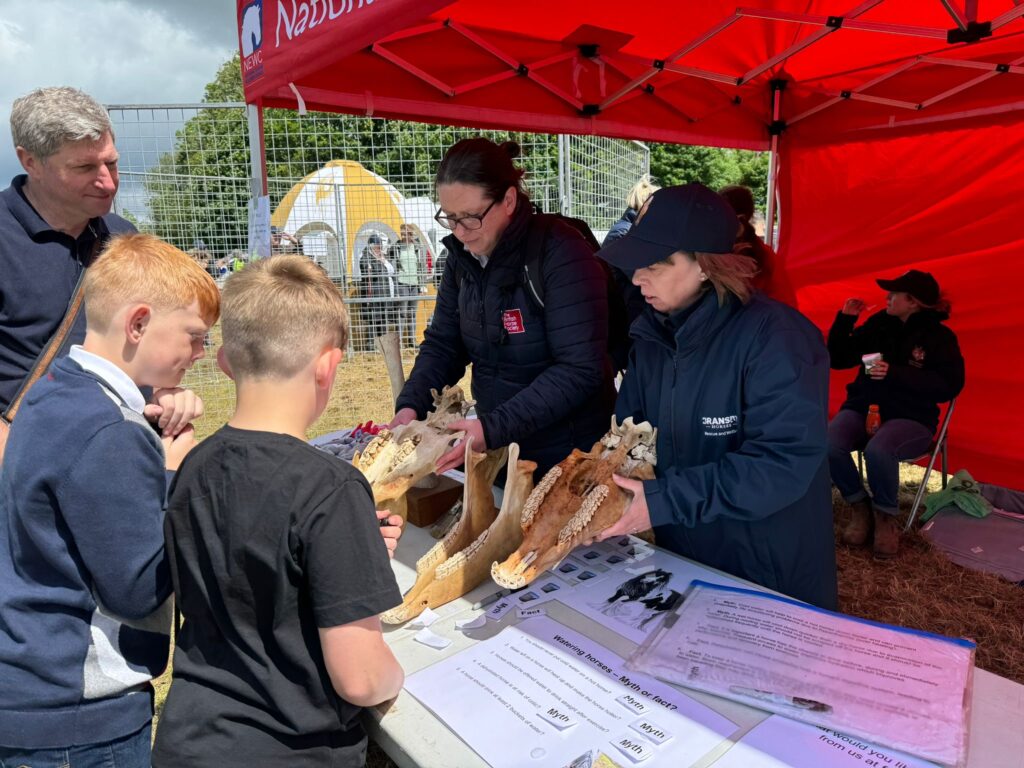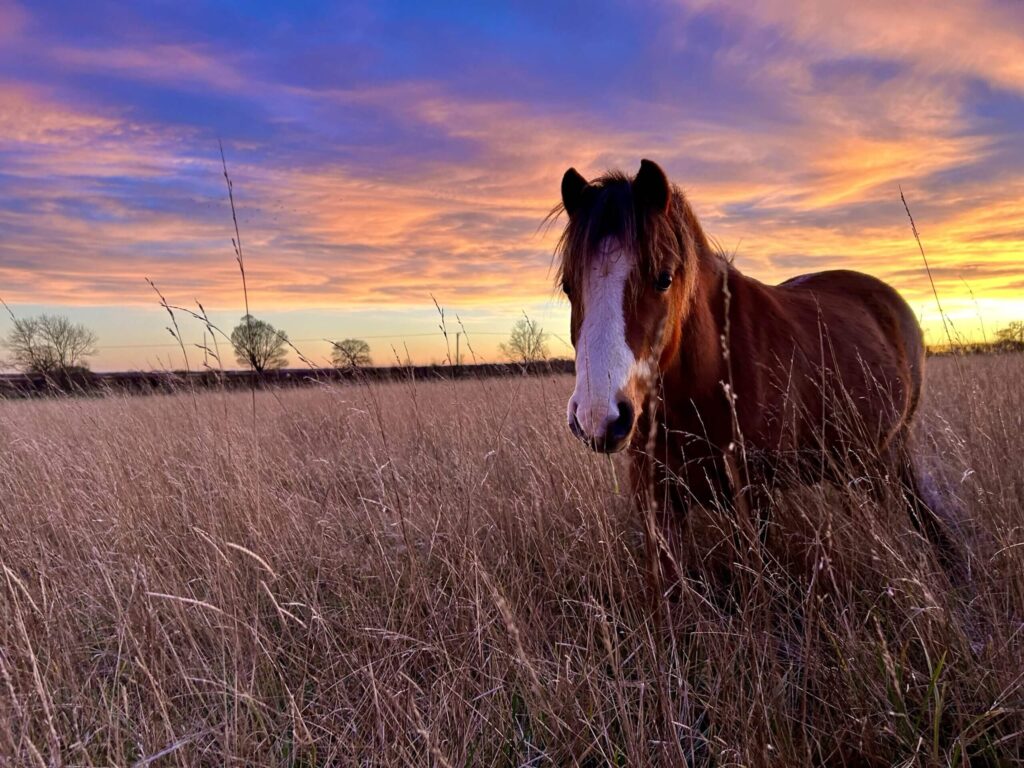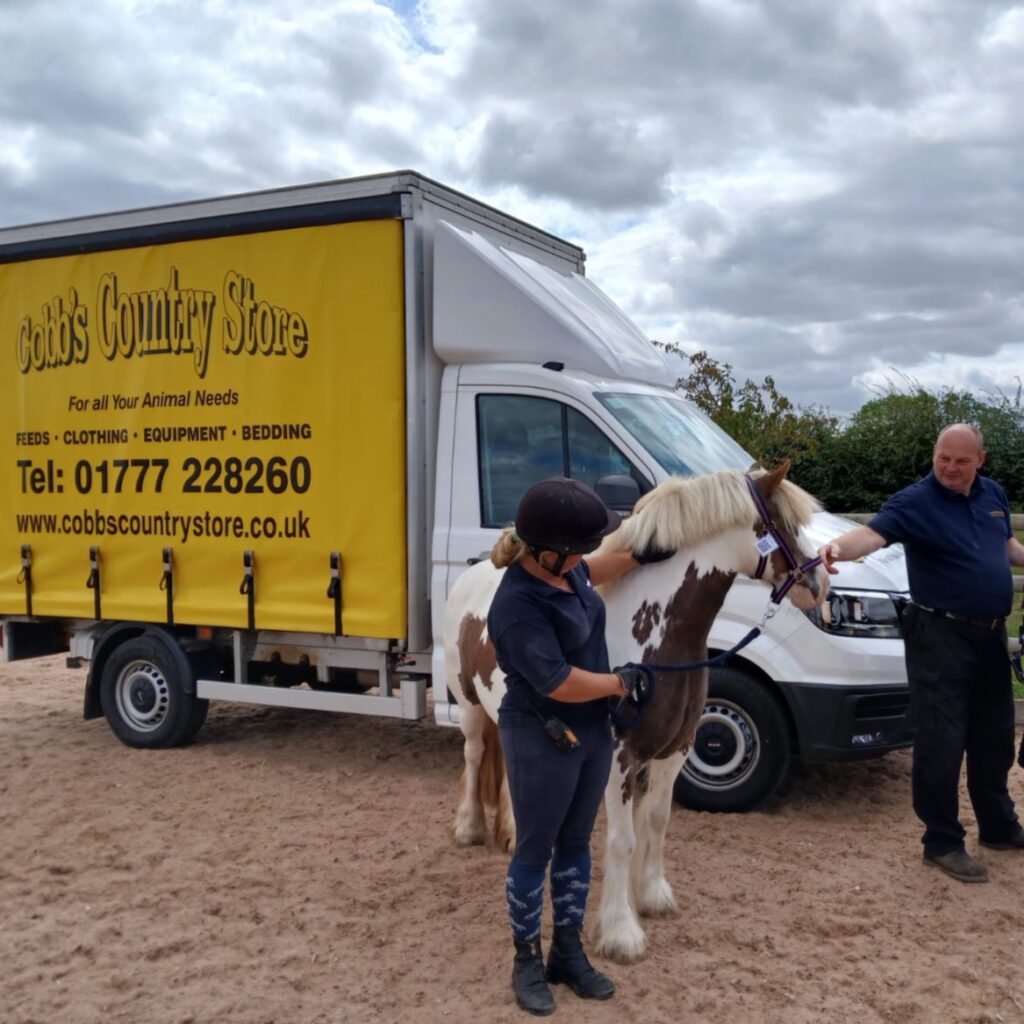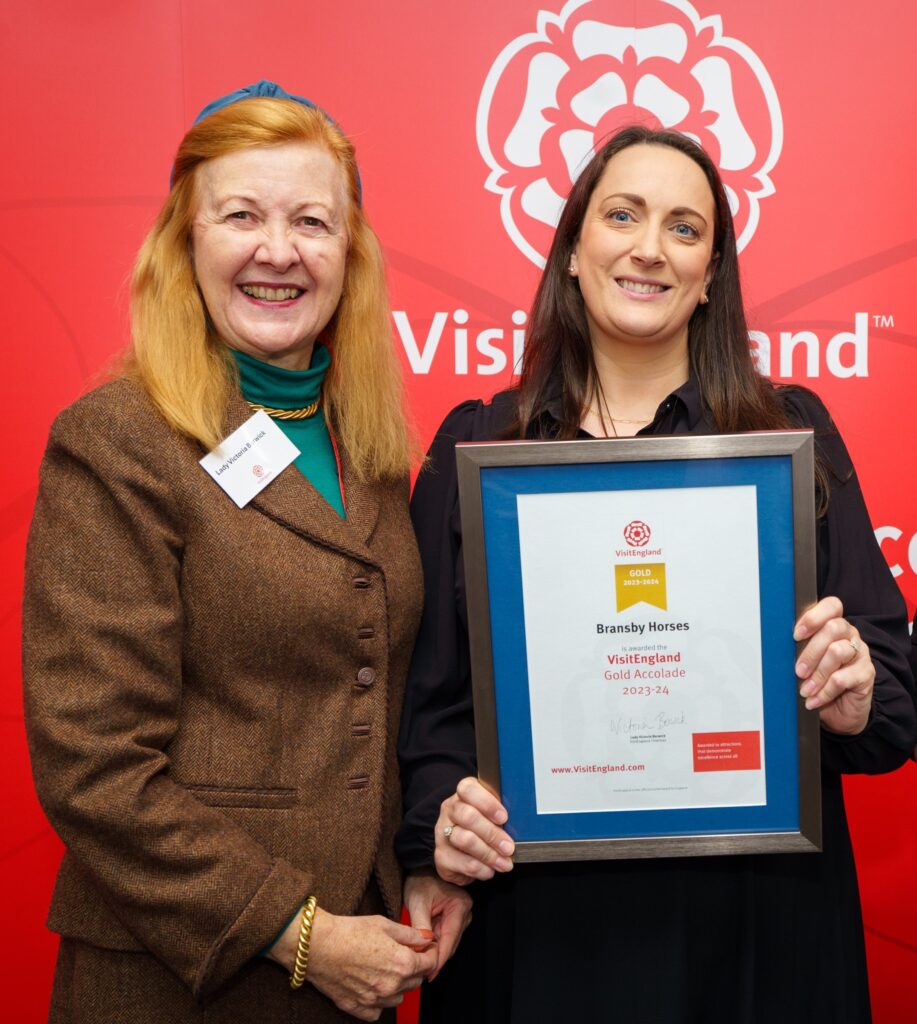Once a Sponsorship Star with a big fan following, little Nero is a well-loved character here at Bransby Horses.
He lives with his brother Domino, within our male herd who are all now out on their summer pasture and on view to visitors.
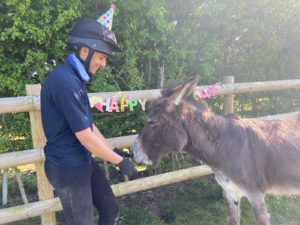
Rebecca, who is team leader at the Visitor Centre Yard where our donkey herds live, said: “Nero is really well at the moment and in a good place with his health. He has liver disease and needs regular medication and is monitored carefully by our vets.
“He is a real character but he can be grumpy so we have to be careful to gauge his mood before we ask him to do anything.
“For his birthday he enjoyed a donkey friendly cake made from fibre nuts and carrots.”
Happy Birthday Nero!
More about Nero
Rebecca said Nero can struggle with the sun during the warmer months due to the effects of his liver disease on his coat.
If the weather gets too warm, he either wears a fly rug to protect his skin or spends the day in a cool stable with Domino.
Liver disease in horses and donkeys is commonly caused by poisonous plants, such as Ragwort.
It isn’t known what caused Nero’s liver problems but, it is a condition he arrived at Bransby Horses with, when he was rescued almost 13 years ago. Read more about Nero here.
What is Ragwort?
- Ragwort is a plant that grows into a mass of bright yellow daisy-like flowers measuring 1.5 – 2 cm across. A mature plant stands anywhere between 30-100 cm tall, but can sometimes reach 2m in height. The lower leaves, stems and roots may have a purple/red tinge;
- Ragwort poses a real danger to donkeys, horses and other grazing animals whether eaten in large quantities in a short period or in small amounts over a longer period of time;
- Ragwort grows in paddocks and pasture land, particularly where the land is overgrazed, as well as on road verges and wasteland;
- Usually horses and donkeys will avoid eating it but not always, particularly when grazing is sparse. It is just as toxic when cut and dried, when the plant loses its bitter taste and will be even more palatable. Owners should be very aware of this plant both in pasture and baled hay/haylage;
- There are several ways to remove it, ideally during spring and summer before it seeds. If pulling-up by hand always wear gloves;
- Defra have published The Code of Practice on How to Prevent the Spread of Ragwort, which provides best practice for the control of ragwort. To eliminate the danger to your donkeys it is important to remove all potential sources of poisoning as quickly as possible and to put a control plan in place.

